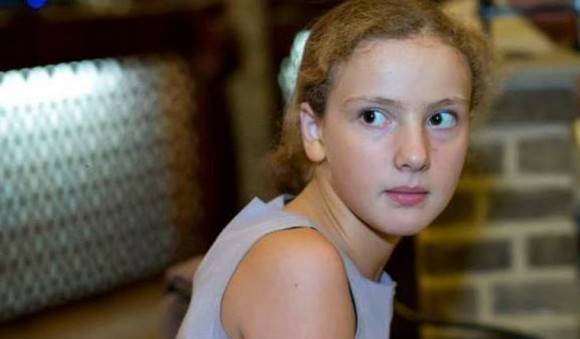
We, the undersigned organizations, make this statement in response to the case of Salome Tatishvili who was killed on a ski run in Gudauri on 10 January 2016. As it is commonly known, Salome Tatishvili, 12, was descending the ski run when a young man skiing at high speed crashed into her from behind. As a result of sustained injuries, Salome Tatishvili died on scene. Charges were brought against G. L. in accordance with Part 1 of Article 116 of the Criminal Code – the infliction of death by negligence. According to the decision made by Tbilisi City Court on 29 December 2017, the defendant was acquitted of the charges brought against him. At this stage, the case is being considered by Tbilisi Court of Appeals with the next court hearing scheduled for 16 April.
Given considerable public interest and numerous questions that arose among the public regarding the case, we would like to address the flaws identified in the process of consideration of the case by the court of first instance. The decision made by Tbilisi City Court indicates that the court's reasoning is in many cases abstract and unconvincing. The reasoning provided in the court decision shows that, in a number of instances, the interpretation and evaluation of evidence by the judge were made ex parte, while consistent testimonies made by many witnesses were ignored. The court must be objective and impartial in assessing facts, which requires all evidence to be evaluated separately and combined, without giving any preference to anyone. To ensure fair justice, it is important that, when the case is considered by Tbilisi Court of Appeals, attention be paid to the issues that were resolved/assessed by the court of first instance in an unconvincing, questionable or unsubstantiated manner or were not assessed at all.
- In its decision, the court of first instance indicated that " there is no speed limit set for ski sports in Georgia and it is therefore impossible to determine what speed would be deemed a consideration of the standard of care which, if observed, would rule out the violation of the standard of care by G. L." The judge's reasoning clearly shows that he effectively ruled out the very existence of the standard of care in the conditions when something is not prescribed in detail by the law. Such reasoning is dangerous as it calls into question the possibility of holding a person responsible for a crime committed by negligence. This way the court suggests that even in the event of violating the standard of care, no one will be held responsible unless all possible cases are envisaged by the law in detail. It is impossible to have all possible specific cases listed in the law, but this does not mean that there is no standard of care. Furthermore, the subject matter of a crime by negligence and the essence of the standard of care are precisely aimed at making people act responsibly and adjust their actions to the experience that exists in a given sphere.
- The court decision shows that the judge did not consider testimonies given by many witnesses and based his reasoning on unclear/vague circumstances. Many witnesses questioned about the case said that the defendant was moving very fast, without controlling his speed, but the judge did not take this into account. At the same time, the judge accepted without reservations only the position of the defendant who claimed that he controlled his speed and movement trajectory. In addition, the fact that the judge virtually ignored the part of the testimony of the defendant himself in which he talked about the circumstances that must be considered by a skier, also raises questions. While the judge believed that there was no standard of care in place, the defendant himself indicated that he was aware of this standard which prohibited him from skiing without control.
- The court says that it has not been established how the events unfolded before the collision and during the collision itself, what Salome Tatishvili's movement trajectory and that of the defendant were like. This reasoning by the court contradicts evidence collected during the hearing on the merits. The witnesses unanimously pointed out that the defendant was moving very fast, in a direct descent, while Salome Tatishvili was making a turn manoeuvre. The witnesses also explained that Salome Tatishvili was skiing in accordance with the rules, at a medium speed and making long turns. Correspondingly, in this part too, what the basis for the judge's reasoning was and why he ignored the witnesses' consistent testimonies is also unclear.
- In his decision, the judge noted that "extreme sports are essentially dangerous sports which involve traumas. In general, sports are good for people's health but we cannot say this about extreme sports which entail high risk." The purpose of this explanation by the judge is unclear and so is the creation of a certain disposition/impression by the court implying that the standard of care may not be observed when it comes to extreme sports. In this as well as other parts of the court decision, it remains unclear what factual and/or legal circumstances serve as the basis for the judge's assessment.
To ensure the trustworthiness and fairness of the administration of justice concerning this case, it is important that Tbilisi Court of Appeals pays close attention to these inconsistencies and makes an appropriate assessment of the circumstances which were not properly considered and assessed by the court of first instance.
Signatory organizations:
Human Rights and Monitoring Center (EMC)
Open Society Georgia Foundation (OSGF)
Article 42 of the Constitution
Partnership for Human Rights (PHR)
Transparency International Georgia
Human Rights Center
International Society for Fair Elections and Democracy (ISFED)

